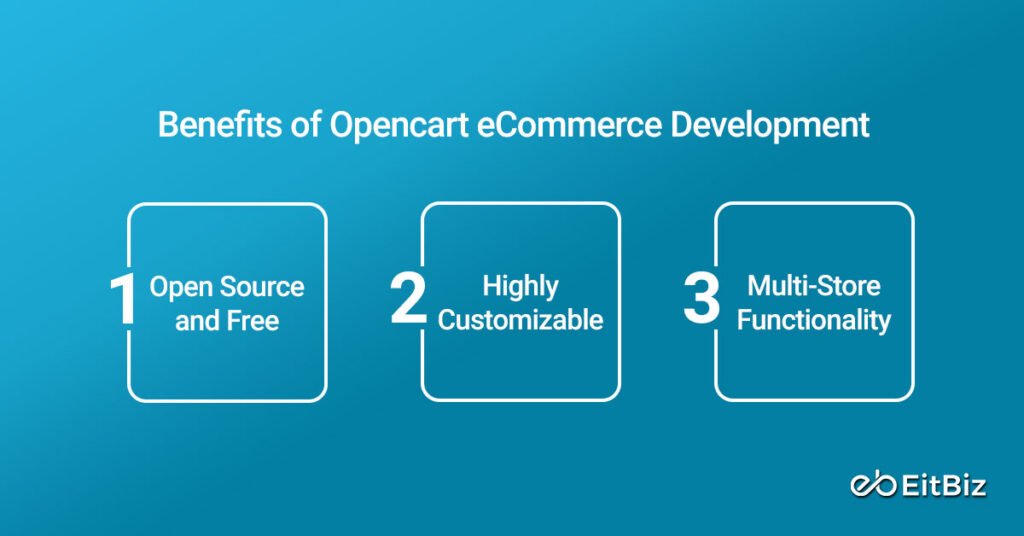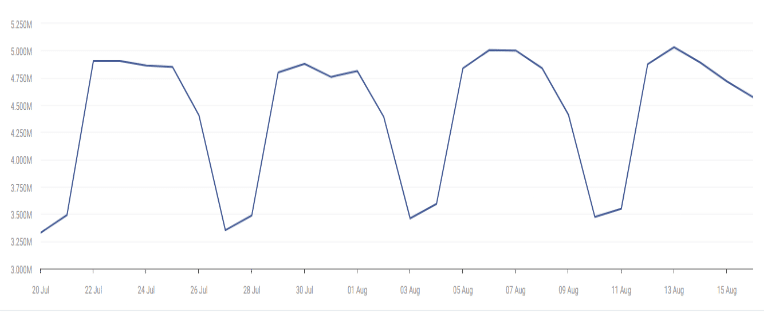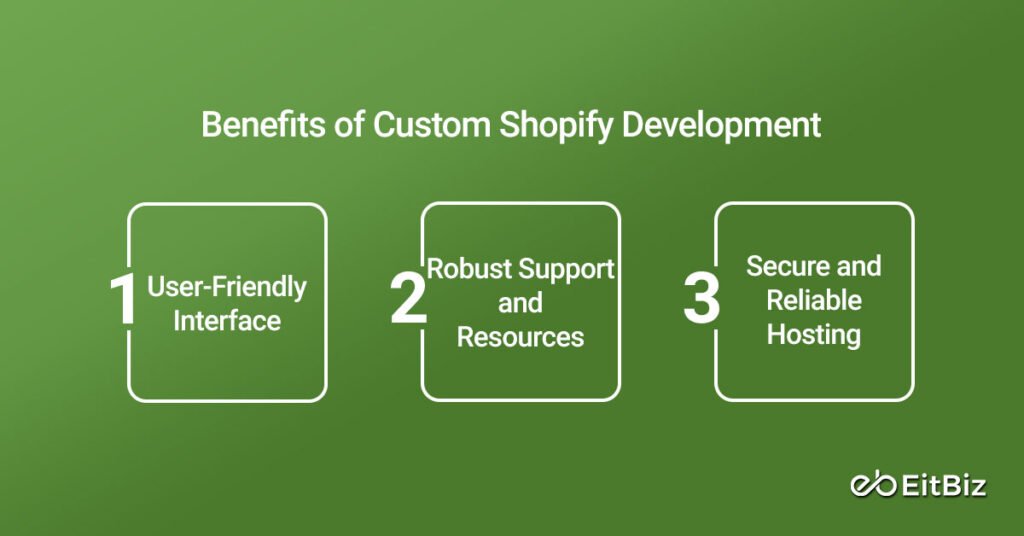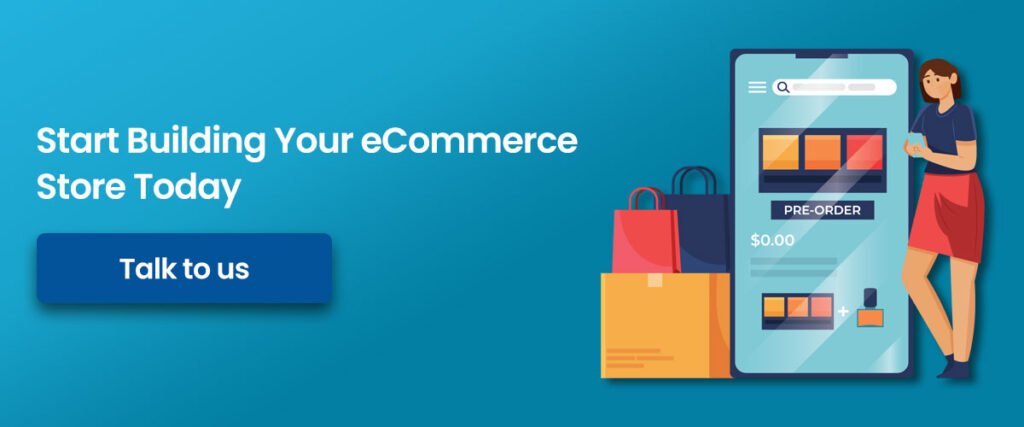2025 is here!
Still, many businesses and even developers couldn’t figure out the best eCommerce platform in 2025!
The moment we heard of the “top eCommerce platforms”, though, there are multiple options out there, “OpenCart” and “Shopify” top the list.
When it comes to building an eCommerce store or website, both frameworks have their uniqueness and strengths.
The former is an open-source framework that enables you to buy some web hosting and then install it to be able to use it while the latter is a comprehensive platform which includes the software and support in the package.
But is it enough? Well, certainly not!
That’s why, this post has come to the rescue to help you find the ideal platform between “OpenCart” vs. “Shopify”.
Without further ado, let’s dive in!
What is OpenCart?
OpenCart is a free and open-source eCommerce platform that enables users to sell and purchase products online. One of the major highlights of the Opencart eCommerce development is that it gives you more flexibility and control over your store to make it more functional and user-friendly. All you have to do is simply customize your store as per your target audience.
Furthermore, if you are a startup or a business with a tight budget, it is an ideal platform as it is free and doesn’t charge you for its services even thereafter. The framework comes with a wide set of tools and features that may help you manage your store effortlessly.
Did you know?
OpenCart has an impressive market share of 7.44% in the Shopping-Cart Shopping Category. (Source: 6Sense).
That’s how popular is OpenCart Development!
When it comes to customizing the look and functionality of your store, you may need to invest significant time and resources to do so, unlike “Shopify”.
What are the Benefits of Opencart eCommerce development?

Let’s discuss the benefits of Opencart.
Open Source and Free
OpenCart is an open-source platform, which means that it is free to use and modify. You have complete control over the code that enables full customization to meet your specific needs. You can add features, tweak the design, or integrate with other systems without any licensing fees.
Highly Customizable
OpenCart offers flexibility in design and functionality with access to thousands of themes and extensions. Whether you need advanced shipping methods, payment gateways, or custom modules, OpenCart’s open-source nature allows you to modify your store to fit your vision and business requirements.
Multi-Store Functionality
OpenCart supports managing multiple stores from a single admin panel. Thus, it allows businesses with different product ranges or geographical markets to efficiently run separate stores, all while maintaining centralized control over operations, inventory, and settings.
Now, that doesn’t mean that the contender is weak! Therefore, this now brings us to our next contender, i.e., “Shopify”.
Next, what is Shopify?
Shopify is one of the largest yet complete eCommerce platforms which allows users to set up an online store in just a few clicks. In simpler terms, the moment you install it on your system, your store is all set to launch. But beforehand, don’t forget to add some products.
One of the major highlights ofcustom shopify development is that it comes with a subscription-based model with simple pricing plans. With a multitude of eCommerce features to choose from, you can easily create a solid and functional store without prior tech knowledge.
Did you know?
- There would be more than 4,790,000 live Shopify stores worldwide by 2025.
- Shopify has over 2.1 million active users across the globe.
- The framework is expected to have 2.1 million active users daily.

Sounds interesting, doesn’t it?
But that’s not the end! There are certain highlights about Shopify! Let’s discuss the benefits of Shopify!
What are the Benefits of Custom Shopify Development?

User-Friendly Interface
Shopify is known for its intuitive and easy-to-use interface, making it a great option for beginners. Setting up an online store is straightforward, with drag-and-drop tools, built-in templates, and simple customization options, making it easy to get started even with minimal technical expertise.
Robust Support and Resources
Shopify offers 24/7 customer support and a wide range of resources, including tutorials, forums, and expert assistance. This ensures that merchants have the help they need to resolve issues quickly, providing peace of mind as you grow your business.
Secure and Reliable Hosting
Shopify provides secure, reliable, and scalable hosting with built-in SSL encryption, meaning your online store is protected from threats. This is ideal for businesses concerned about security, as Shopify takes care of hosting, software updates, and performance, allowing you to focus on your store.
But if both eCommerce platforms are so popular then what should I choose for eCommerce store development?
Don’t worry; we have come up with an overview of both Opencart development and Shopify to help you find the ideal winner for your business.
OpenCart vs. Shopify: What’s the Difference?
Let’s take a look at the differences between OpenCart and Shopify based on the following parameters.
Parameter #1: Pricing
Having said that, Opencart eCommerce development is an open-source eCommerce platform that is free to download and install. But once you download your store, you will need to bear additional costs related to hosting a domain name, and an SSL certificate, which could be a costly affair in the long run.
Shopify, on the other hand, has more structured pricing and most importantly, is upfront without any additional cost that a user might face later.
| Winner: Shopify (in terms of upfront pricing and no hidden costs) |
Parameter #2: Ease of Use
When it comes to setting up a new eCommerce store, “OpenCart” demands extensive coding skills from the developer. However, it could be challenging for users without technical knowledge. But that’s not the case with Shopify
There is no need to run into technicalities and coding when it comes to Shopify eCommerce store development. All you need to do is simply provide your email address and store name and you’ll be redirected to the Shopify dashboard.
From Shopify’s dashboard, you can simply test, organize, manage, and modify your online store’s layout, colour, and text. If you want to build a store using Shopify, hire the best Shopify web development company today!
| Winner: Shopify |
Parameter #3: Multi-Store Management
If any business wants to open multiple stores, they can easily make it happen with the help of OpenCart development. Unlike Shopify’s store model, a startup can easily set up multiple stores and manage them from a single admin panel. Not only does it help you save money but also keeps things error-free and hassle-free. The best part about OpenCart is that each store will have its appearance, language, and currency.
On the other hand, managing multiple on Shopify could be challenging and even drain your valuable time and money.
| Winner: OpenCart |
Parameter #4: Multiple Extensions & Apps
If you’re talking about multiple extensions and apps, OpenCart takes the lead as it could be an ideal choice! With more than 13,000 extensions for shipping methods, product categorization, and payment gateways, businesses can easily customize their stores. Another major advantage over Shopify is that it has enormous extensions for eCommerce.
Speaking of its counterpart, Shopify has also an enormous range of extensions and apps that perfectly serve your purpose.
Since OpenCart has a maximum number of extensions and apps, it stands out and becomes an ideal choice for multiple apps and extensions.
| Winner: OpenCart |
Parameter #5: SEO and Marketing Tools
OpenCart: OpenCart has basic SEO features, such as customizable meta tags, URLs, and support for Google Analytics. However, it may require additional extensions for more advanced SEO functionality. OpenCart provides the flexibility to implement custom SEO practices, which is ideal for experienced marketers who want to tailor their approach.
Shopify: Shopify offers a range of SEO features out of the box, including meta tags, sitemaps, and SSL certificates. Its ease of integration with marketing tools, such as Google Analytics and Facebook Pixel, makes it easier for beginners to enhance their SEO efforts. Shopify’s app store also includes a variety of SEO apps to improve search engine rankings.
| Winner: Shopify |
Parameter #6: Security
No matter what kind of eCommerce store you want to build online, you cannot overlook its security.
Speaking of both eCommerce store development frameworks, OpenCart is not liable for protecting your stores. But if you have already installed or planning to build a store via OpenCart then you can enable an SSL certificate for both the store and admin panel.
When it comes to OpenCart, creating a security system for your store protection isn’t easy and demands time and effort.
On the contrary, Custom Shopify development offers a wide range of security solutions that not only offer protection for consumers but also safeguard their finances. Since it has a hosted cart, it makes protection easier and more convenient.
| Winner: Shopify |
Parameter #7: Support and Community
OpenCart: OpenCart offers community-driven support through forums and a large user community. There are also paid support options available from third-party developers and agencies specializing in OpenCart. However, users may need to rely on forums or hire experts for specific issues.
Shopify: Shopify provides 24/7 customer support via chat, phone, and email for all its users, making it a great choice for those who may need consistent assistance. Shopify also has an extensive knowledge base and a community forum where users can find solutions and share advice.
| Winner: Shopify (in terms of accessibility and reliable customer support) and OpenCart (in terms of community support and third-party resources). |

What are the key Differences Between Shopify & OpenCart?
Let’s take a look at the differences between Shopify development & OpenCart development.
| Feature | OpenCart | Shopify |
| Hosting | Self-hosted, requires separate hosting. | Fully hosted, including hosting. |
| Ease of Use | Requires technical knowledge. | Very user-friendly, with no coding required. |
| Pricing | Free to use, but costs for hosting and extensions. | Subscription-based (monthly plans). |
| Customization | Highly customizable, open-source. | Limited customization compared to OpenCart, but still flexible. |
| Payment Gateways | Supports a wide range of payment options with third-party integrations. | Includes many built-in payment options, including Shopify Payments. |
| Themes & Design | Large selection of free and paid themes, customizable. | Wide variety of professionally designed themes, paid themes mostly. |
| Security | Requires manual security updates and patches. | Automatic security updates and SSL certificates are included. |
| Support | Community support, with options for paid support. | 24/7 customer support, phone, chat, and email. |
Final Thoughts
So, there you have it! That’s a wrap to the OpenCart vs. Shopify debate!
It is no secret that both frameworks have their own set of uniqueness. To help you out, if you are new to the industry and want to build everything from scratch then “Opencart eCommerce development” could be an ideal choice. On the other hand, if you want everything ready and don’t have enough time to invest, look no further than a Shopify web development company!
Ready to build a solid eCommerce store for your business? If so, partner with EitBiz and build a robust, functional, and feature-rich store. Drop us an email at info@eitbiz.com or call us at +1(812)530-6300 today!







